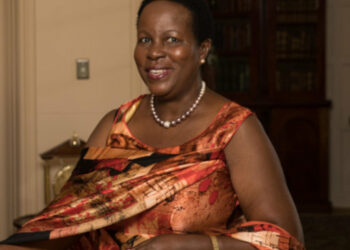By Denis Jjuuko
Kabaka Ronald Mutebi reshuffled his government last week. Like most of his changes, the announcement came over the weekend. Besides the style of how he makes changes, his new cabinet is very lean. Without advisors and some staff, cabinet is just 12 people even though the list included the Lukiiko (parliament) speaker and his deputy. If Kabaka Mutebi hailed a taxi to transport his cabinet, the driver could refuse—as it would have two empty seats. That’s how lean his government is.
There was a time Mmengo had probably 50 ministers and I always wondered what they were doing apart from getting seats on the high table at events. Of course the title of Oweekitibwa (honourable) is endearing and opens a few doors, in real substance, the more people they are, the less work gets done.
So in trimming his government significantly, Mutebi was sending a message to his Katikkiro and everyone else that business is no longer as usual. It is time for much more serious work. Not that the Katikkiro has not been effective rather that there is much more to achieve. The ministers just like the Katikkiro will be working full time.
One of the problems Mmengo has always had was relying on volunteers. Volunteers are very good people and they enabled the Kingdom register significant success in the past. But at the leadership level in Uganda of today, there are many limitations to voluntarism.
You hardly put volunteers to account. They come to office as they wish and you cannot demand a lot from their time as they have to go and find resources that will enable them live decent lives. So ministers in Mmengo like most of them in voluntary organisations were many, worked very hard but it was not always effective. For example, it is demoralizing if you called a meeting of 40 people and only 25 turned up. When you have 12 ministers, if you have 8-10 available (and the others you know where they are) for a meeting, things work.
And also if they are working full time, you give them specific terms of reference and if they don’t work, you can easily fire them. Through regular performance reviews, ministers would know that they are to be fired if they don’t deliver. So they will put in much more effort than they previously did. Also because they are few, they will become more powerful and will ideally do everything under the sun to deliver and avoid being pointed at as people who Kabaka facilitated and didn’t deliver.
When the Kabaka released his new list of ministers, I checked the USA’s cabinet. It is the world’s biggest economy and its list is just 21 members. This list includes the president, vice president, secretaries (the title for their cabinet ministers), White House Chief of Staff, attorney general and directors of national intelligence, central intelligence agency, and management and budget. That may explain why the US is the biggest economy in the world—they are lean, which makes them efficient.
Big cabinets create the grasshopper in the basket situation where they bite each other and each struggles to be at the top. The grasshopper in basket situation is euphemism for intrigue and jostling for attention from the appointing authority and the public. Everyone wants to be seen even if it means stepping on each other’s toes. It is easy for people to forget the big picture as they pursue personal glory.
Also resources that would be used to deliver services end up paying for cabinet members. The 4X4s our ministers drive cost as much as USD180,000 each. So if you have 70 ministers, that is USD12.6m on vehicles every five or so years. With only 20 ministers, you would save USD9m every five years, which can be used to deliver services. In fact the USD9m is conservative because it doesn’t include fuel, drivers, guards, secretaries, office space and such other expenses.
But the lessons from Kabaka’s reshuffle are not only for governments. Businesses can learn a thing or two looking at small numbers to create efficiency. Of course some people will argue that smaller governments and businesses lead to unemployment, which is not true. As long as people are innovative, the economy is working for everyone, there will be jobs.
The writer is a communication and visibility consultant. djjuuko@gmai.com
Do you have a story in your community or an opinion to share with us: Email us at editorial@watchdoguganda.com











